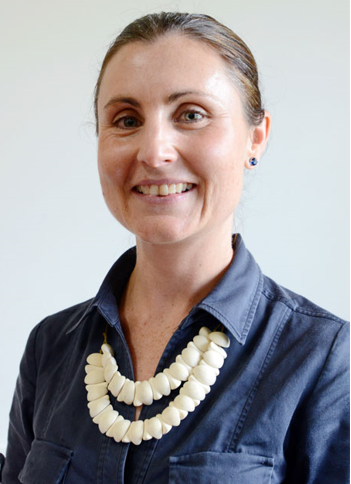Study helps to understand how clinicians can better support people with ABI related communication change return to work


Results from a study being conducted by Hopkins Clinical Fellow Kate Cameron, ABI TRS clinicians, Dr Kerrin Watter and Nina Wegener and Griffith University’s Professor Petrea Cornwell, are helping understand how clinicians can better support people with ABI related communication change return to work.
Preliminary data from the study’s scoping review is demonstrating the most up to date evidence around specific communication assessments and processes, the level of communication skill needed for particular work roles and therapeutic approaches that may predict and support return to work success after an Acquired Brain Injury. Kate says: “the evidence around how we support people with communication disorders following an ABI with their vocational goals has undoubtedly been growing in recent years however to translate this into practice has been difficult for clinicians on the ground. The scoping review findings are helping us consolidate this knowledge to make it more accessible for clinicians practising in the area and to identify and develop the resources needed to support practice”.
“Communication is such a complex skill and the interplay of even subtle changes to a person’s abilities with their work role and their working environment is significant. These changes can be as subtle as change to their ability to maintain eye contact, their tone of voice or even the way they initiate a conversation, so clinicians working in the area must have the right assessments, processes and resources.”
The scoping review forms part of a multi-phase study which also includes an international clinical benchmarking survey and expert opinion focus groups. Knowledge gained from all parts of the study will help support the development and refinement of clinical resources to help clinicians better assess and treat people with acquired cognitive-communication disorders return to work.
Resources developed as part of this study will also help to bolster the vocational rehabilitation framework that the Acquired Brain Injury Rehabilitation Service (ABI TRS) has established. This framework ensures clients with vocational goals receive worksite visits and reviews and therapists liaise with employers, develop individualised vocational profiles and suitable duties plans.
The importance of addressing vocational rehabilitation for people with ABI is significant. Across the world, rates for returning to work after an acquired brain injury (ABI) are low. Some studies have estimated the rate to be as low as a 40% returning to work. Despite these figures, many people who experience ABI are working age and have working goals.
A change in a person’s communication and interpersonal skills due to an ABI are thought to play significant role in this sequalae. Recent studies suggest that 75-100% of people are likely to experience communication change as a result of ABI making this is a significant problem. Moreover, with workplaces putting increasing emphasis on so called soft skills, combined with an increasing incidence of ABI this is also a rapidly growing problem.
Communication deficits can occur after any type of ABI, including Traumatic Brain Injury (TBI), concussion and mild brain injury, penetrating injuries, hypoxic injuries, stroke, ischaemic injuries, Right Hemisphere Disorder (RHD), and encephalitis. Of possible communication deficits after ABI, cognitive-communication impairments are by far the most prevalent. These are difficulties in communicative competence (listening, speaking, reading, writing, conversation and social interaction) that result from underlying cognitive impairments (attention, memory, organisation, information processing, problem solving and executive functions).
Cognitive-communication disorders are now accepted as a diagnostic category and have been established within the scope of Speech and Language Pathology practice, guidelines and standards nationally and internationally including in the USA, Canada, Scotland and New Zealand. They are recognised as unique disorders which require individually tailored programs.
Clinicians involved in assessing and treating ABI related communication impairments are still able to participate in the survey and express an interest in taking part in the online expert opinion focus groups. For more information on the study, please contact Katherine.cameron@health.qld.gov.au
Tags: ABI
Related Articles
- Bold Ideas Better Solutions Symposium 2017
- Improving the ability of employers to communicate with brain injured workers
- THC Researchers take out the 'Most Innovative Idea' Award on an international stage
- Celebrating International Day for People with disability
- ABI TRS celebrates their second anniversary of clinical service

